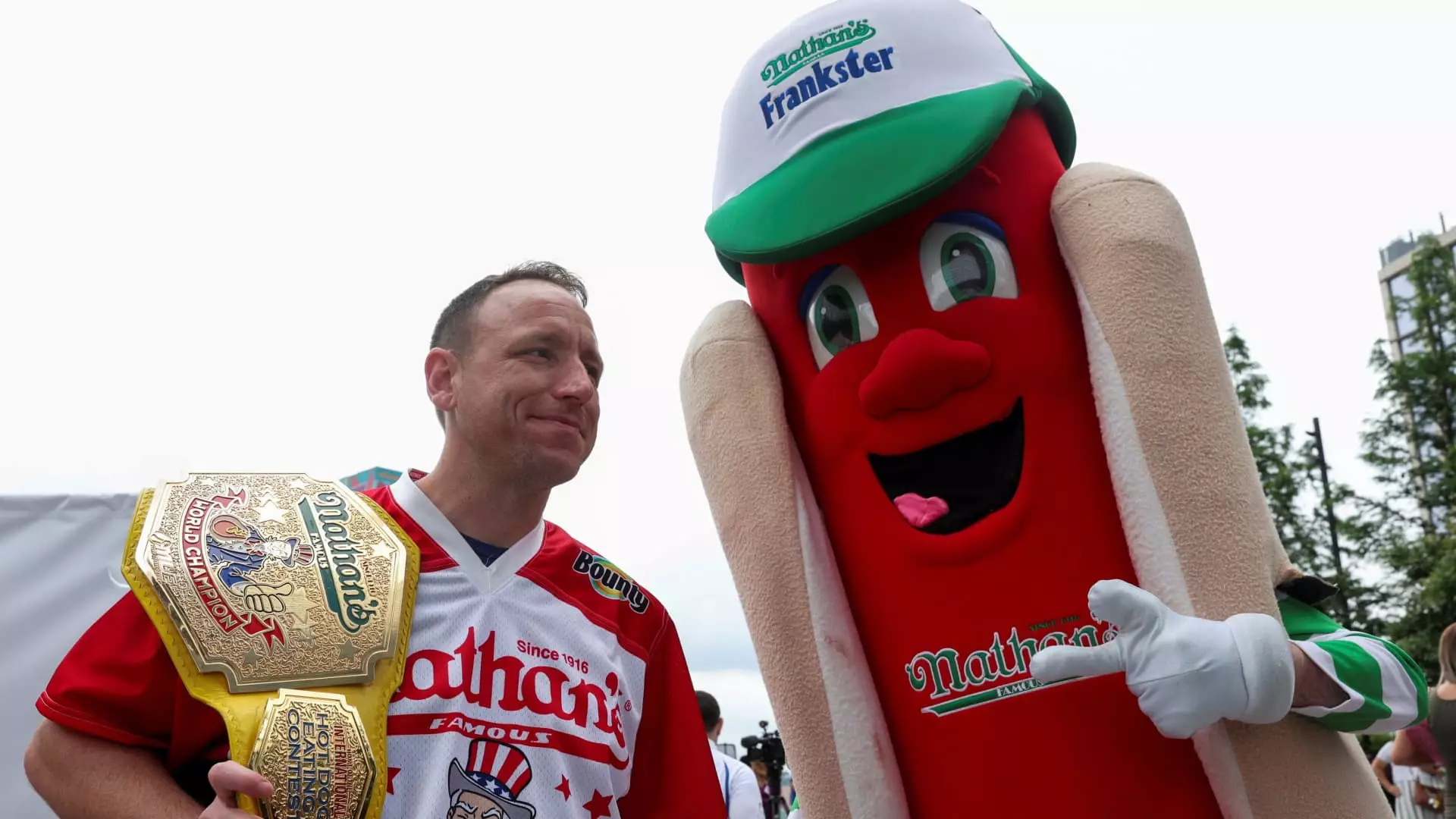The news that Major League Eating (MLE) has decided to part ways with 16-time champion Joey “Jaws” Chestnut ahead of the Nathan’s Famous Fourth of July hot dog eating contest has shocked many fans. This decision came after Chestnut chose to represent a rival brand that sells plant-based hot dogs, leading to the termination of his $1.2 million, four-year contract with MLE. The New York Post reported that the brand in question is Impossible Foods, known for offering plant-based alternatives to traditional meat products.
Impossible Foods claims that its plant-based hot dogs are healthier and more environmentally friendly than traditional meat hot dogs. They boast of having half the saturated fat of the animal version and generating 84% less greenhouse gas emissions. However, for nearly two decades, contestants in the hot dog eating contest, including Chestnut, have operated under the “hot dog exclusivity provisions” set by MLE. This means that they are expected to only promote and consume hot dogs from sanctioned brands like Nathan’s Famous during competitive eating events.
In response to the situation, Major League Eating President Richard Shea expressed his admiration for Chestnut as a champion and a friend. He hoped that Chestnut would reconsider his decision to promote a rival brand’s veggie hot dogs and return to the Nathan’s Famous hot dog eating contest for Independence Day. MLE even went the extra mile to accommodate Chestnut’s requests, such as allowing him to participate in a different unbranded hot dog eating contest on Labor Day, to be streamed on a major platform.
The Impact on Nathan’s Famous
The Nathan’s Famous Hot Dog Eating Contest in Coney Island, New York, is not just a competitive eating event but also a marketing strategy for the company. The decline in sales of their signature hot dog, especially with the shift towards health-conscious eating habits and consumer wellness trends, has put pressure on the brand. This departure of Joey Chestnut, a legendary figure in the hot dog eating world and holder of the Guinness World Record for eating the most hot dogs in 10 minutes, raises questions about the future of the event and its participants.
The decision by Major League Eating to sever ties with Joey Chestnut over his affiliation with a rival brand of plant-based hot dogs has created a stir in the competitive eating community. The clash between tradition and innovation, health-conscious choices and indulgent foods, has highlighted the evolving landscape of the food industry. As the Nathan’s Famous Fourth of July hot dog eating contest approaches, the absence of Chestnut’s dominating presence will be felt, but it also opens up opportunities for new champions to emerge and for the event to adapt to changing consumer preferences.

